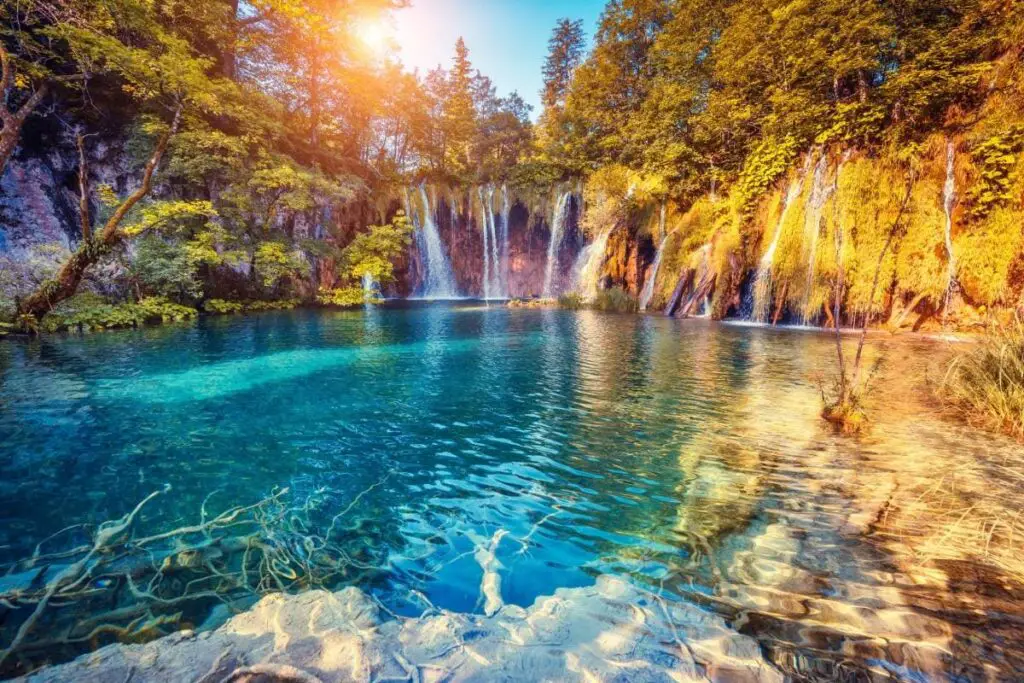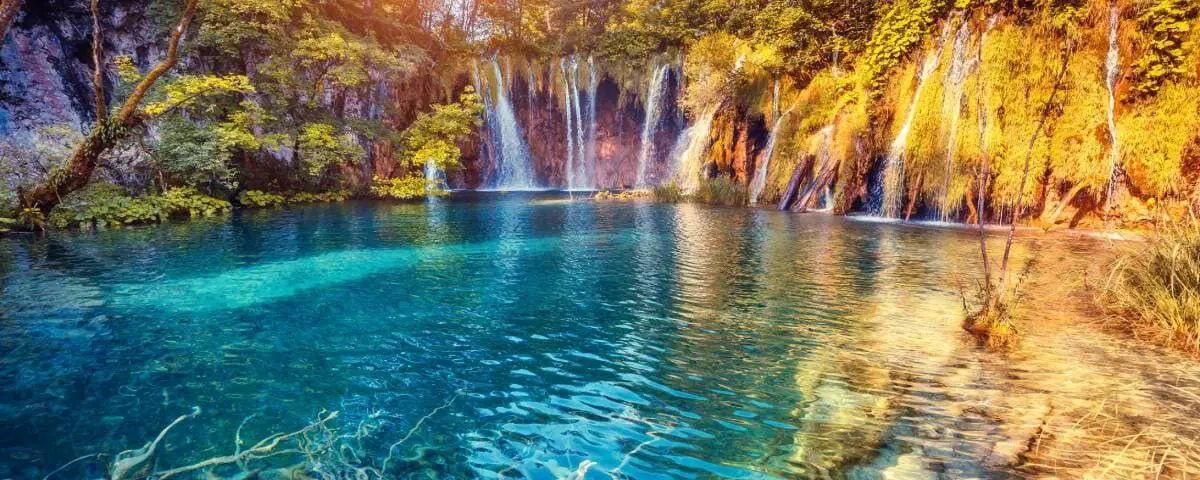It is hard to imagine life on earth without nature as it’s something we’ve come to take for granted. Humans often don’t realise the importance of nature, which is evident in how we treat the environment. However it’s vital to understand why nature is important to humans and how it affects us.
Nature is important to humans because life on earth would be unsustainable without it. It provides oxygen, food and habitation for billions of people. As important as technological advancement is, it’s important to sometimes observe your environment and ask yourself, why is nature important to humans?
In this article we answer this question in detail and as clearly as possible. If you’ve ever wondered just why nature and humans are so intertwined, this should help you understand.

How Nature Affects Us
Everything exists in a balance. Although there is some kickback to the balance of nature theory, it will always be evident that nature and humans walk almost hand in hand.
Nature is a life-enabling force without which humanity could not survive. If we stopped to think of how we are affected by nature, we would be humbled to remember that our very survival as a species depends entirely on nature.
The atheist, agnostic and believer in a creator would agree that nature is the reason our planet continues to teem with life. The most devout Christian would be likely to agree that God created nature before human life.
Nature affects us in immeasurable ways, but for the sake of discussion, let us first identify the ways nature impacts human life:
- Life could not exist without water.
- Plant and phytoplankton photosynthesis support oxygen production.
- The balance of the ecosystems protects the human species.
- Plants provide nutrition to sustain animal life.
- Nature inspires the arts.
- Nature offers humanity the sciences.
- Health and quality of life are enabled by nature.
- Nature is essential to our mental well-being.
Life Could Not Exist Without Water
We are all wearily familiar with the cliche of science fiction movies that begin with water being discovered on some distant planet. Suddenly, NASA and the media become frenzied about life on other planets. The lesson here is simple. Water equals life.
From the tiniest cyanobacteria to the largest whale species known to man, all life forms need water in some form to survive. Water is an essential part of nature. It is the spring of all life, without which plants, animals, and humans would become extinct.
Plant and Phytoplankton Photosynthesis Support Oxygen Production
Remember how we said water equals life? That is because the oxygen we breathe is made from water absorbed by trees, plants, shrubs, grass, and phytoplankton during photosynthesis.
The process by which plants synthesize food.
Oxygen is a by-product of photosynthesis and is one of the key reasons why nature is so important to humans.
The Balance of the Ecosystems Protects the Human Species
Few humans appreciate or respect the balance of nature because they do not know the danger that results when this balance is upset. The rise or fall of the population of even a single organism impacts the rest of the ecosystem.
Sometimes natural occurrences disrupt the balance in an ecosystem; examples of these are volcanic eruptions, floods, hurricanes, landslides, and epidemics. But the disruption is often caused by human activities such as urbanisation and even war.
The following are ways humans can cause disturbance in the ecosystem:
- Deforestation can lead to soil erosion which can lead to increased flooding.
- Deforestation and overfishing can lead to loss of biodiversity and food shortages.
- Misuse of water and pollution of freshwater sources.
- Pollution by humans will eventually become unmanageable and affect our health.
- Rising temperatures may become unbearable for life on earth.
These destructive disturbances to the ecosystem are a threat to the human species.
Plants Provide Nutrition
Food is essential to the survival of our species. We only have to look at war-ravaged communities without access to food to know just how crucial it is.

The heartbreaking images of starving men, women, and children provide a distressing picture of what would happen if food shortages become critical worldwide.
Nature provides many plant foods that give us sustenance and enable the normal organ system functions that support human and animal life. Depletion of nutrients gives rise to a number of health conditions that can lead to complications that may be fatal if not treated.
The importance of plants for breathing is immediately evident with basic knowledge of biology. However, as food, their importance often goes unnoticed.
Plants as food are generally relegated to veganism leaving many people to wonder what is the importance of nature in this form? After all, the majority of our food comes from stores
While modern innovation has given rise to more food options than ever before, many of these are still rooted in nature. Billions of dollars are used in food production every year.
Farms worldwide work round the clock to grow food which eventually gets processed into the forms we see on our tables.
Even with this, a quick google search of “processed foods” will give you hundreds of websites touting the dangers of it. This isn’t to say that all processed food is bad. Far from it. The occasional bag of potato chips or bottle of energy drink won’t do much harm.
However, processed food is often significantly unhealthier than it’s agricultural origin and carries far more risk to health if not eaten in moderation.
Health and Quality of Life Are Enabled by Nature
The importance of nature to humans is even made more evident in healthcare. Many of the medicines we depend on to overcome diseases are derived from nature in some shape or form
While healthcare has made amazing strides over time, many drugs have their basis in nature. This is an important point to be aware of as many people erroneously believe that modern medicine has all the answers.
Although modern medicine plays its part, it’s still vital to give credit to nature for the part it plays.
Nature Inspires the Arts
Nature enriches the human experience with its beauty and majesty. Its beauty has inspired many a writer, poet, and painter throughout history. Masterpieces have resulted, which inspire us, just as their creators were once inspired by nature. Even music and various dance forms have taken inspiration from nature.

The letters of Vincent van Gogh to his brother Theo are profoundly beautiful testaments to the power of nature to inspire, transform, and heal. Van Gogh found respite from the emotional and mental anguish that plagued him during his lifetime by beholding and immersing himself in nature. Amid the inner turmoil, nature afforded him some peace.
This video is also a fitting tribute to the calming effect of nature.
Art is understandably not the first thing that comes to mind when people think about the importance of nature. However, it is often where nature and humans come together almost seamlessly.
Nature Offers Humanity the Sciences
Nature has been the subject of study by many of the world’s greatest minds. It has provided the maps to many of man’s most significant discoveries and blueprints for some of man’s greatest inventions.
Modern aviation was born in the mind of the Wright brothers, who spent a great deal of time observing birds in flight. And Isaac Newton introduced the world to the Laws of Gravity by observing an apple falling from a tree?
Many feats of science and technology were conceived by minds whose eyes were constantly fixed on nature, learning its secrets and wonders. And nature constantly gives us new things to discover and study.
Nature Is Essential to Our Mental Well-Being
A substantial body of scientific evidence supports the idea that nature profoundly impacts our minds and behavior. Spending time in nature has been shown to reduce anxiety and stress, increase creativity, and improve the capacity to focus.
It also helps us form meaningful connections with other people. But we didn’t need the scientific data to know that. We already know this simply from gazing at the sunset.
No one can look at the sunset and have their mood unchanged in the moment.
Final Thoughts
Nature is a life-giving force, and its importance to humanity is an immutable fact. It is vital to the continuity of humanity and the other species that call earth home. But nature does more than ensure the survival of humankind; it gives meaning and purpose to that survival.
If the question “how does nature affect humans?” has ever crossed your mind, I hope this article has given you all the clarity you need.

